It’s time to weed and seed, say garden coordinators
By Jo Mathis/AAPS District News
Along with swing sets, jungle gyms, and gaga pits, most Ann Arbor Public School playgrounds boast a school garden on the property, offering students a fun, relaxing, and productive way to spend some time in the fresh air.
While the shutdown also forced a year-long halt to planting and harvesting these gardens, a dedicated group of parent and staff volunteers are gradually reclaiming and replanting them.
“We are still limited with the use of our gardens this spring,” says Neha Shah, Burns Park Elementary School Garden Coordinator and AAPS Farm to School Collaborative Steering Committee co-chair. “However, we are opening them back up in a slow roll with proper AAPS and CDC guidelines in place. We are hoping AAPS staff will utilize the garden spaces this spring with their students to enjoy the benefits of school gardening.”
That’s exactly the plan of Lawton third grade teacher Julia Gold, founder and coordinator of the Lawton Learning Garden just outside her classroom window.
“It brings me such joy to offer opportunities for children to experience gardening,” says Gold, who managed to teach some basic principles of seeds, soil and fairy gardens simultaneously to her in-person “roomies”—who were getting their hands in the dirt—and her online “Zoomies” at home.
Lawton’s garden began In 2013 when Gold’s fourth graders came up with a written proposal to add a vegetable garden to the playground.
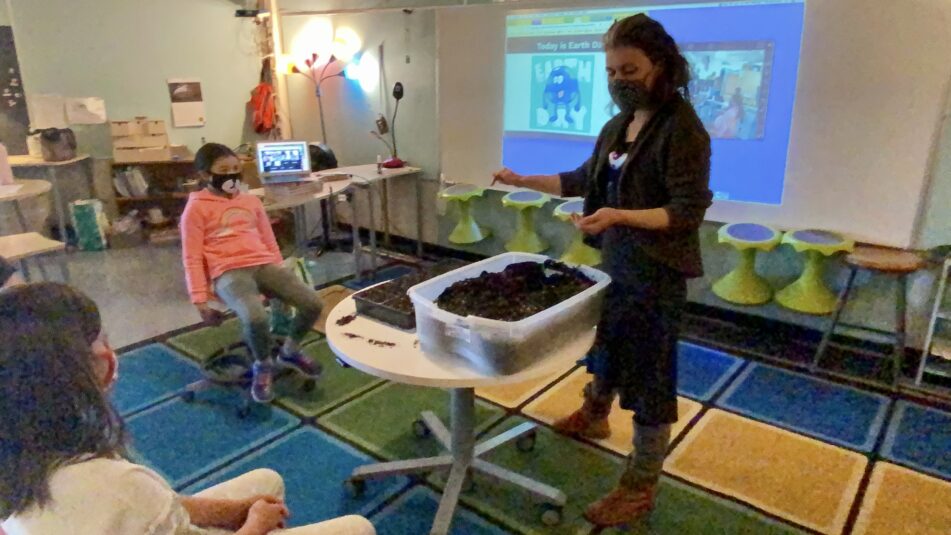
“They wanted something that would give kids a greater chance to interact with nature,” she said, explaining how the students dressed in business attire and made a presentation to the principal about the benefits of planting a vegetable garden on the playground.
The idea was accepted, and took off from there, with lots of help from volunteers along the way.
Lawton volunteer garden chair Kelly Rutyna says kids learn many important things from gardening.
“It just connects kids to where we’re from,” she said, speaking via Zoom along with the students learning from home. “It gives kids the opportunity to remember that we’re connected to the earth; that we all play a part in growing the earth and taking care of it.”
“We sometimes take for granted where our food comes from. We go to the grocery store, but we don’t appreciate how hard it is to grow something. You don’t just plant something and see it grow. You have to nurture it and really care for it. It takes time and patience and I think that’s really important for our kids to learn.”
Lawton Garden Chair Kelly Rutyna
School gardens are a big deal at Ann Arbor Public Schools. There are currently 26 school gardens on sites with most of them currently active. Mitchell Elementary and Scarlett Middle School volunteers are working together to implement a school garden in the next year.
“School gardens are extremely important extensions of our classrooms that provide authentic approaches to learning,” says Shah. “Gardening increases environmental awareness with a focus on biodiversity through hands-on experiences that enhance the curriculum. Students learn how to plant, grow, harvest, prepare, and eat healthy food from the gardens.”
She says that as they garden, students learn cooperation, teamwork, empathy, becoming more engaged, more attentive, and intrinsically motivated to learn.
“Teaching students about where food comes from empowers children to become active participants in their food choices,” she says, “and in the food system by increasing their knowledge and skills with food.”

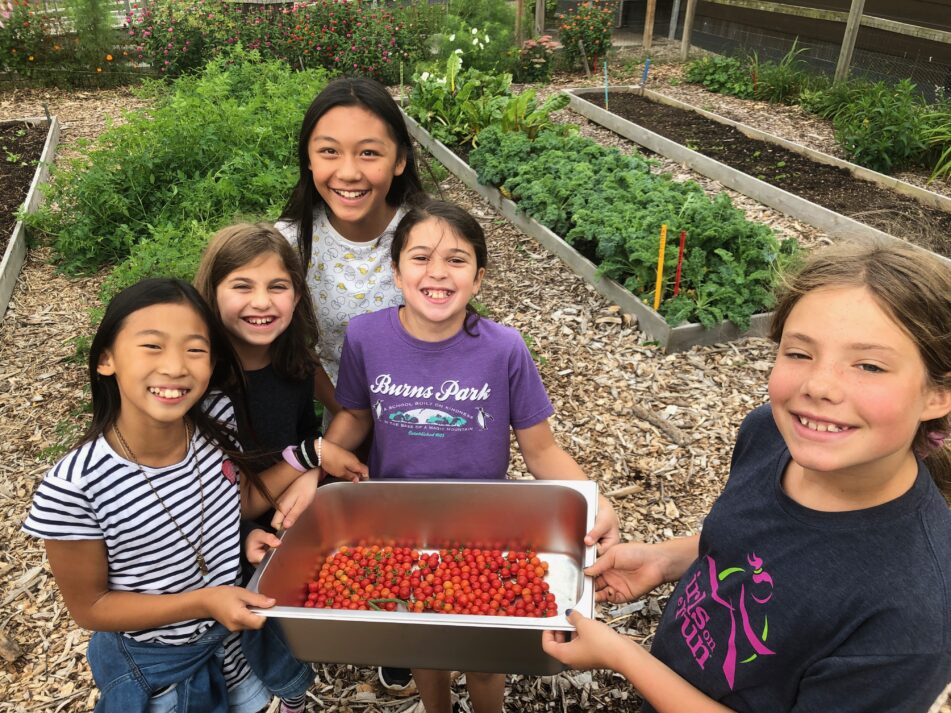
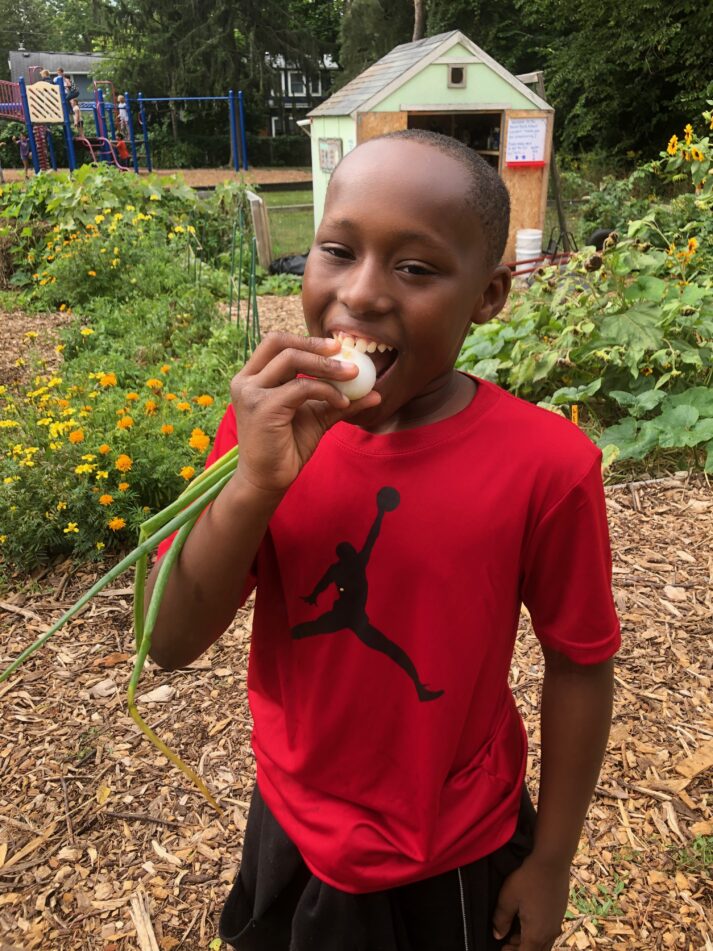
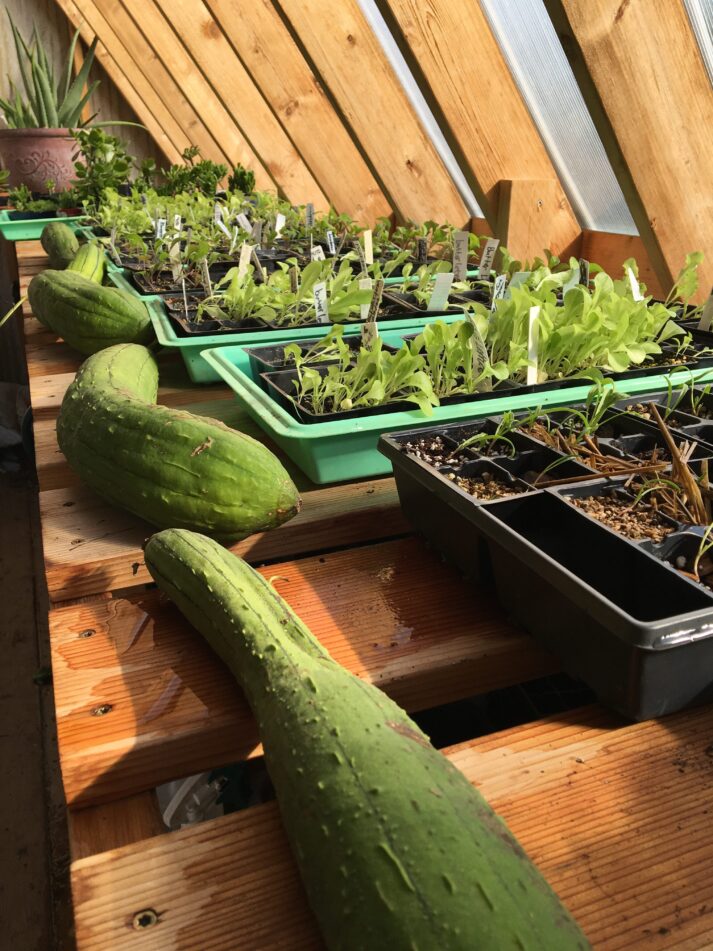
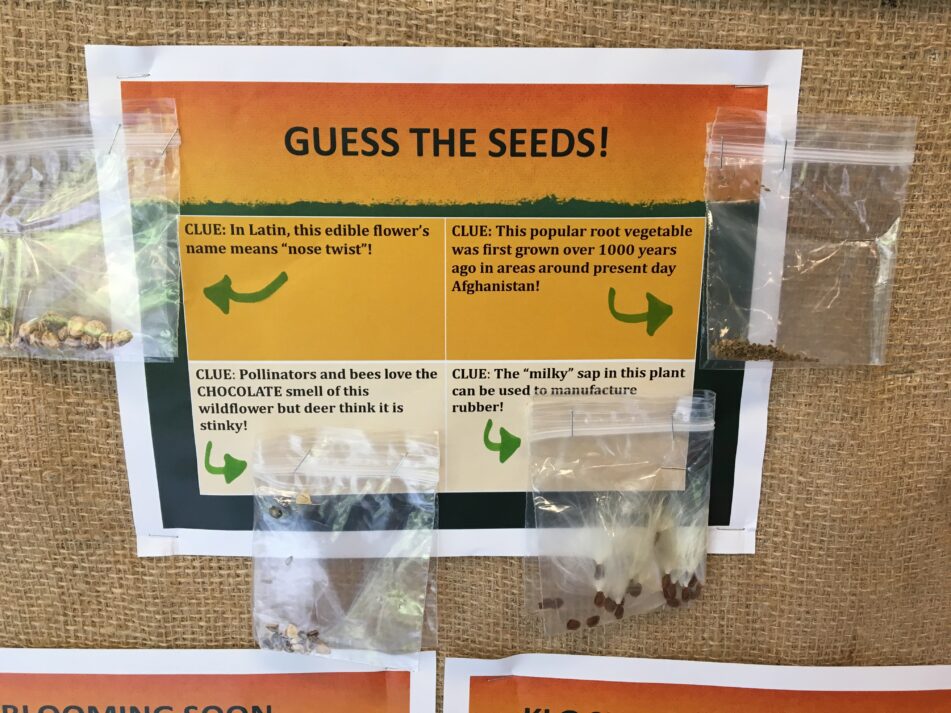
Be the first to comment